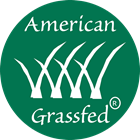In a world where the integrity of our food sources is increasingly under scrutiny, the American Grassfed Association (AGA) represents a beacon of excellence in the world of livestock farming. AGA’s stringent standards and best practices not only ensure the highest quality of produce but also lead the way in promoting transparency, animal welfare, and sustainable farming. For producers and consumers alike, understanding and engaging with AGA’s guidelines is paramount to promoting a better, more ethical approach to the food industry.
The Core of AGA’s Standards
At the heart of AGA’s certification program are the fundamental principles that dictate their high standards. These principles, which touch on the diet, habitat, and welfare of the animals, as well as the farm’s impact on the environment, combine to create a holistic approach to farming that benefits producers, consumers, and the planet.
100% Grass Diet
The mandate for a 100% grass diet from weaning to harvest is a standout feature of AGA certification for ruminant animals. This ensures not only the natural diet for the animals but also guarantees a healthier product for the consumer. For swine and dairy, the focus remains on a diet free from GMO grains, continuing the commitment to high-quality, sustainable feed.
Raised on Pasture
AGA’s standards require that all animals are raised in pastures, without confinement. This commitment to free-range livestock ensures the health and wellbeing of the animals and is considered paramount by AGA to fulfill their natural behaviors and instincts.
No Antibiotics or Hormones
Prohibiting the use of antibiotics and added hormones reinforces AGA’s dedication to promoting health and welfare. It protects consumers from unnecessary exposure to such substances while also challenging producers to adopt alternative, sustainable management practices to maintain livestock health.
Family Farm Origin
The requirement for family-farm origin is more than just sentimental; it’s about supporting local, sustainable agriculture. By ensuring that animals are born and raised on American family farms, AGA is a proponent for small-scale, ethical farming that not only produces healthier food but also fosters stronger communities.
The Nuts and Bolts of Best Practices
AGA’s Best Practices are a detailed framework outlining the various facets of farm management, animal care, and the producer’s relationship to the greater agricultural community. These practices form the operational guidelines that distinguish AGA-certified operations.
Regenerative Farm Management
AGA’s emphasis on regenerative practices is a forward-thinking approach to farming. It highlights a commitment to both the welfare of the animals and the health of the land. This approach is designed to enhance land, water, and air quality, supporting a rich ecological system.
High Animal Husbandry Standards
The meticulous focus on animal husbandry in AGA’s grazing programs is designed to support healthy, humane treatment and welfare. This goes beyond the basic requirements to provide comprehensive care for the animals throughout their lives.
Adaptation to AGA Standards
Producers must be willing to continuously adapt to the evolving standards set by AGA. This commitment ensures that only the forefront of scientific knowledge and ethical animal management are employed within the AGA-certified operations.
On the Field: Applying AGA Standards in Practice
For all the integrity of their standards, AGA’s true impact is felt on the farms and pastures where these principles are put into action. Producers who champion the AGA certification are part of a community dedicated to fostering change in the agricultural landscape.
Forage Excellence
The emphasis on open grass pastures and diverse forage sources is crucial to the health and quality of the meat. AGA lays out specific requirements to ensure that the animals receive an optimal, species-appropriate diet for their entire lives.
Confinement Exceptions
AGA’s stance on confinement is clear but also acknowledges the need for rare exceptions, such as during inclement weather or for the safety and health of the animals.
Animal Health and Welfare Monitoring
The standard protocols for monitoring animal health and welfare underscore AGA’s commitment to the individual wellbeing of each animal. This includes meticulous record-keeping and a responsive treatment plan when needed.
The AGA Certification Journey
Becoming AGA certified is a rigorous process that includes farm inspections and the adherence to continuously evolving standards. For producers, this certification is a signal of commitment to excellence and sustainability in farming practices.
Inspections and Consumer Confidence
The regular and stringent inspections by independent third parties provide consumers with the assurance that the AGA certification is more than just a label—it’s a warranty of ethical, high-quality farming practices.
The Consumer-Producer Partnership
For consumers, choosing AGA certified products is a vote for a more equitable, sustainable food system. It’s a partnership that extends from the fields to the dinner table, promoting the welfare of animals and the health of the environment.
The Ripple Effect
Supporting AGA-certified producers creates a ripple effect. It encourages others in the industry to adopt more ethical and sustainable practices, driving positive change on a broader scale within the agricultural community.
AGA and the Future of Agriculture
AGA’s efforts and influence extend far beyond its certifications. The association is an active proponent for sustainable agriculture, animal rights, and the promotion of healthful food options for consumers worldwide. Its impact on the industry is shaping a future of agriculture that is more ethical, transparent, and health-conscious.
AGA is not only setting the standard for ethical and sustainable livestock farming; it’s leading by example. Its best practices and rigorous standards are a template for the industry, and a beacon for those who wish to contribute to a more responsible food system. Whether you’re a producer considering certification, a consumer seeking sustainable food choices, or someone simply interested in the future of agriculture, AGA’s work is a pivotal force in the ongoing conversation around the food we eat and the world we live in.
